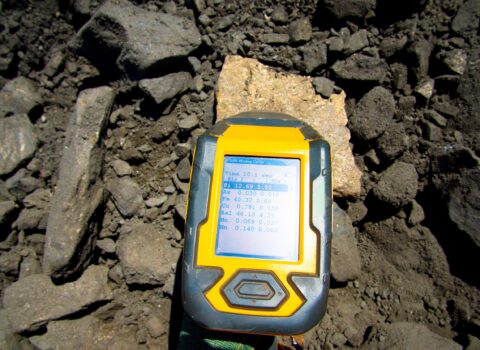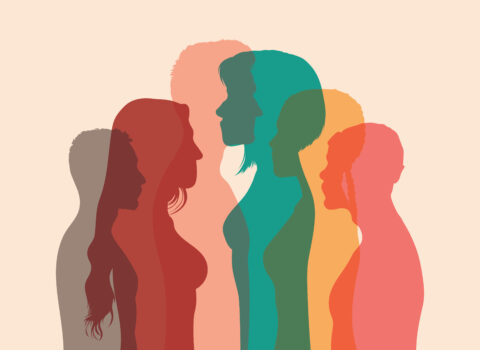
Metaverse, education, sociality. What will our direction be?
A side remark from the first web page in history to the Metaverse: what should we expect from the new virtual reality, how could it help humanity, and what are the potential gray areas instead?
Year 1992. U.S. writer Neal Town Stephenson imagined, in his postcyberpunk novel Snow Crash, a late 20th-century hyper-capitalist America dominated by multinational corporations and doubled through the possibility of access, via avatars, to a three-dimensional virtual reality, the Metaverse.
Just a year earlier, in 1991, CERN Geneva researcher Tim Berners-Lee put online the first Web page ever, based on Web 1.0 technology that, although still rudimentary, opened up an unprecedented possibility of communication on a global scale and (at least apparently) unlimited access to information.
It may seem like centuries ago, but just over 30 years have passed: many things have changed since then, and today the new technological frontier is represented by Web 3.0 and Web3, which have now become synonymous with each other but were created separately. In fact, the concept of Web 3.0 (or semantic Web) was coined by Berners-Lee himself, who envisioned a data-driven configuration, governed by smart applications capable of analyzing the data itself and making decisions.
Later reviving the project was computer scientist Gavin Wood, founder of the Web3 Foundation: his idea of the web (developed in 2014) is in fact based on the availability of new technologies, such as the blockchain database, that make it possible to structure a decentralized web.
But a decentralized web in what sense and why?
The goal would be to overcome what has been seen as a negative turn brought by Web 2.0 (currently in use), namely, the rise of a few giants that own social networks and operate e-commerce. At the center of attention is not only their economic overpower but also, and more importantly, the arbitrariness with which they can control data traffic on the Web, with serious issues related to privacy rights (which emerged, for example, with the Cambridge Analytica scandal).
Decentralizing data would thus mean, at least in intentions, returning its management to users and making the web more equitable and inclusive.
On the other hand, the technological advancement of Web3 is not limited to this, opening up unprecedented immersive possibilities, although still to be developed.
Precisely because of its immersiveness, the Metaverse will in fact be radically different from the virtual reality we have known to date, surpassing the 2D mode of current Webs and social networks and providing users with an interactive type of experience.
This development will thus represent the last step after Mixed reality (connecting virtual and augmented reality) and Extended reality (meeting point between virtual, augmented and mixed reality): the very term “metaverse” literally means “beyond the universe,” clearly expressing the idea of extreme progress.
Another distinguishing feature will be its permanence: indeed, the metaverse will exist regardless of our presence in it, recording the consequences of our actions.
From opportunities for work and commerce to opportunities for sociability and education, the metaverse would thus seem to usher in unprecedented scenarios worthy of interest: after all, it is no coincidence that at the end of 2021 Mark Zuckerberg, owner of the social networking sites Facebook, Instagram and Whatsapp, decided to change the name of his company to “Meta.”
Even earlier, on February 16, 2017, Zuckerberg himself published a manifesto on the need to build a global community as a remedy to the dissolution of human communities that has occurred over the decades.
Reconstituting the social fabric thanks to online resources, completing the breaking down of geographical barriers, reassembling the world: it is evident that the development of a fully immersive reality could accelerate and perfect such a project, certainly endowed with good intentions.
Another field in which the metaverse could bring significant improvements is education: already in June 2022, in a school in Bari, Italy, 150 students aged 8 to 14 were involved in an experiment, led by the startup Augmented.City, related to the application of augmented and mixed reality technologies to the study of history. Augmented.City CEO Katherina Ufnarovskaia said she was fully satisfied with the results, as all the children involved proved capable of using the tools provided and had the opportunity to immerse themselves in three-dimensional content, reproductions of famous people, buildings and historic neighborhoods.
Additionally, a significant boost to virtual learning development projects was brought about by the forced experience of Distance Learning (didattica a distanza, DAD), imposed during the Covid-19 pandemic months with often unsatisfactory results.
Despite the fact that virtual universities have existed for years now, designed to meet the needs of those who, for work reasons, but not only that, were unable to physically attend the university and adjust to its often discontinuous schedules, most university and school environments did not prove to be able to keep up with the times and digitization. On the contrary, as soon as the emergency was said to be over, online teaching was almost immediately abandoned everywhere: driven by the desire to return to an understandably desirable in-person teaching method that allowed for more active interaction between the student community and the faculty, we have, however, often forgotten what we have learned, without even considering the possibility of developing and using it as a supporting method.
On the other hand, there are also those who now imagine being able to make up for the obvious shortcomings of distance learning thanks to the metaverse precisely: hence the neologism Metaversity, which is intended to denote a virtual but immersive, three-dimensional university environment in which common spaces are reconstructed in which, through one’s avatars, a “real” encounter is made possible, as well as unprecedented forms of teaching and research. A medical student could, for example, learn surgical techniques and diagnostic methodologies without risk; a history student could come into direct contact with custom-reconstructed historical events and places; an archaeologist trainee could visit and gain experience at archaeological excavations located in dangerous regions.
In addition to extreme interactivity, the metaverse could also perfect the internationalization of university courses (as well as extend it to lower school levels) without the need to physically move from one’s city or country.
But, in the face of so many advantages, some form of intellectual honesty would also impose an analysis of the potential harmful aspects: first, taking into consideration the use of the metaverse for the purpose of ever higher quality learning, one would nevertheless have to take into account the fact that, as a human product, even such an advanced level of virtual reality would not be free of flaws and errors.
As much as, for example, the metaverse could greatly facilitate the study of history, we should not forget that the latter has its roots in the real world, in written sources and material evidence of various kinds (objects, art, architecture etc.); and that therefore the use of digital tools will always have to be accompanied by the ability to critically examine sources. Furthermore, we should also keep in mind how important it is to protect them: digitization is a fundamental tool today, but it cannot in any way imply that authentic sources be neglected or even eliminated, as some would like to do.
On the other hand, on a social level, it is unthinkable that the metaverse can make up for our problems, in an age in which human relationships, authentic discussion with others, and the creation of bonds are increasingly difficult for us: as much as the promised breaking down of barriers and boundaries in the virtual world is purposeful, it is precisely the real barriers that fuel a growing climate of conflict. Moving away from home, visiting other countries, getting to know new languages, cultures, tastes and traditions represents a valuable and irreplaceable experience: getting out of one’s comfort zone, opening oneself to the different as is not possible to do in an inherently aseptic virtuality.
And although the opening of social occasions and international courses of study through the metaverse could actually provide greater inclusiveness, we need to make sure that this does not generate yet another class issue; i.e., that these tools are in the future really accessible to all and not the prerogative of a more or less restricted privileged elite.




